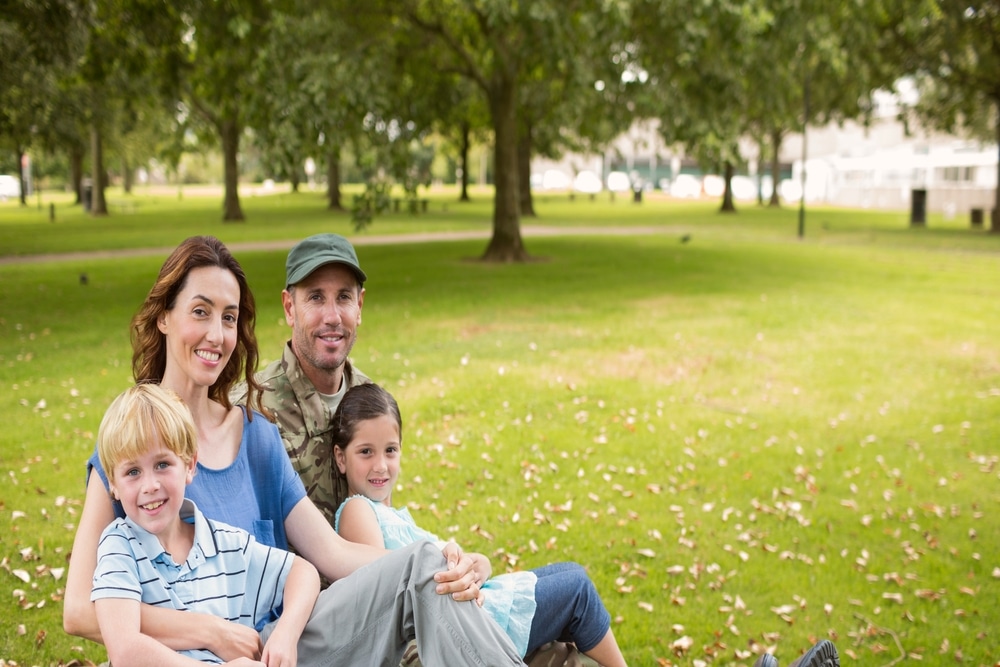You Served, Now Let Us Serve You
At Wasatch Crest, we honor the commitment and sacrifice of veterans by providing specialized, trauma-informed addiction treatment. Our gender-specific residential programs and co-ed outpatient programs offer a structured, supportive environment where veterans can heal from substance use disorder and co-occurring conditions such as PTSD, depression, and anxiety.
We understand the unique challenges faced by those who have served, and our evidence-based therapies are designed to address the deep connection between trauma and addiction.

The Reality of Addiction and Trauma Among Veterans
- More than 1 in 10 veterans struggle with a substance use disorder (National Institute on Drug Abuse).
- Approximately 17 veterans die by suicide each day in the U.S. (VA National Suicide Prevention Report).
- PTSD affects up to 30% of veterans, significantly increasing the risk of substance use (U.S. Department of Veterans Affairs).
Comprehensive, Trauma-Informed Care for Veterans
Veterans are at a higher risk for PTSD, moral injury, and substance use disorders due to the demands and experiences of military service. Our treatment model integrates trauma care with addiction recovery, ensuring that both are treated simultaneously for lasting healing.
Our Treatment Modalities
We utilize a range of research-backed therapies, including:
- Gender-Specific Residential Treatment: Many veterans, especially women, find safety and support in our gender-specific environments, where they can process trauma and heal in a community designed for their unique recovery needs.
- Cognitive Processing Therapy (CPT): A structured, evidence-based approach that helps veterans reframe distressing thoughts related to trauma, such as guilt, blame, or shame. Cognitive therapies support individuals in challenging unhelpful beliefs that may keep them stuck in a cycle of pain and addiction.
- Cognitive Behavioral Therapy (CBT): Helps veterans identify and change negative thought patterns linked to trauma and addiction.
- 12-Step Facilitation & Peer Support Groups: Uses the 12-step framework to provide camaraderie and shared experiences in recovery.
- Medication-Assisted Treatment (MAT): Offers safe, evidence-based support for managing withdrawal and cravings.
- Family Therapy & Support Groups: Helps veterans and their friends and family rebuild connections and navigate reintegration challenges.
- Dialectical Behavior Therapy (DBT): Teaches emotional regulation and distress tolerance skills.
- Equine and Experiential Therapy: Outdoor activities such as hiking, equine therapy, and adventure-based outings mirror the teamwork and resilience familiar to veterans.
Accessible & Personalized Care
Wasatch Crest prides itself on providing unmatched care for all clients, including veterans.
- We accept veteran insurance: As proud partners with the VA, we accept veteran health insurance to expand access to quality treatment. We coordinate closely with the VA to streamline the process for a smooth and timely entry into care.
- We provide personalized care in a mountainside setting: Our private Wasatch Range location provides an ideal healing environment away from everyday triggers, and our intimate treatment setting ensures individualized attention.
- We offer family programming: Military service impacts the entire family. We offer education and counseling to strengthen family bonds and support long-term recovery.
Discover Treatment Elevated at Wasatch Crest
Wasatch Crest delivers best-in-class care with a proven track record of high client satisfaction and graduation rates that exceed industry standards.
Founded by individuals who know firsthand the challenges of addiction and the power of recovery, we blend professional care with personal commitment. Our comprehensive, individualized approach ensures veterans receive the highest level of support for lasting recovery.
Wasatch Crest’s program aids each veteran in rewriting their story in sobriety. Guided by a compassionate team and inspired by a legacy of perseverance, we walk alongside those who’ve served our country as they reclaim their lives.
FAQs: Accessing Treatment for Veterans
How do I know if I qualify for VA insurance coverage for addiction treatment?
Veterans enrolled in VA healthcare may be eligible for substance use disorder treatment, including residential care. Our admissions team works close with the VA to verify your benefits and help you navigate the process.
How quickly can I enter treatment?
We streamline the admissions process to ensure a smooth and timely entry into care. We coordinate directly with the VA to make the admissions process as simple as possible.
What Types of Addiction Are Most Common Among Veterans?
 Veterans may struggle with a range of substance use disorders. However, alcohol, prescription opioids, and illicit drugs such as heroin and methamphetamine are among the most common.
Veterans may struggle with a range of substance use disorders. However, alcohol, prescription opioids, and illicit drugs such as heroin and methamphetamine are among the most common.
Alcohol misuse is especially prevalent due to its social acceptance and availability. Many veterans are also prescribed pain medications for service-related injuries, which can lead to opioid dependence.
In some cases, attempts to self-medicate mental health conditions like PTSD, anxiety, or depression may increase the risk of addiction. Co-occurring disorders often complicate recovery and require integrated treatment approaches.
What Are the Signs That a Veteran May Need Help for Substance Use?
Signs a veteran may need support for substance use can include:
- Increased isolation
- Mood swings
- Changes in behavior or performance at work or in personal relationships
- Physical symptoms (weight loss, poor hygiene, or frequent illness)
Veterans might use substances to numb emotional pain, cope with flashbacks, or manage sleep disturbances. If substance use starts interfering with daily responsibilities, relationships, or mental health, it’s a strong indication that they may need professional help. Early intervention can improve recovery outcomes significantly.
How Does Military Culture Affect Substance Use and Recovery?
Military culture emphasizes toughness, self-reliance, and loyalty. These are qualities that, while valuable in service, can sometimes discourage veterans from seeking help.
The stigma around mental health and addiction may cause some to view asking for support as a weakness. Additionally, alcohol use is often normalized within military communities, which can lead to unhealthy habits that persist after service.
That said, the same values of discipline, perseverance, and camaraderie can become strengths in recovery when channeled into treatment programs specifically for veterans, where shared experiences foster understanding and trust.
Can I Receive Addiction Treatment While Continuing To Live at Home?
Yes, you can receive addiction treatment while continuing to live at home. Wasatch Crest offers flexible options, including a partial hospitalization program (PHP) and an evening/virtual intensive outpatient program (IOP), designed to support individuals who need structured care without full-time residential treatment.
PHP provides a high level of support during the day while allowing you to return home at night. The evening/virtual IOP lets you participate in therapy and recovery activities around your schedule. This helps with balancing treatment, work, family, and other responsibilities.
Are There Treatment Programs Designed Specifically for Female Veterans?
Yes, treatment programs exist that are specifically created for female veterans. At Wasatch Crest, women can receive care in a supportive, gender-specific environment through our women-only programs held at the Jupiter campus.
Located in Park City, the 10,000-square-foot Jupiter residence offers space for up to 16 female clients. The setting in the serene Wasatch Mountains provides a peaceful refuge for reflection and healing.
Seek Support Today
Veterans dedicate their lives to protecting others. Now, it’s time for them to receive the support and healing they deserve. Give us a call at 800-385-3507 or complete an online contact form, and a team member will reach out to you.
